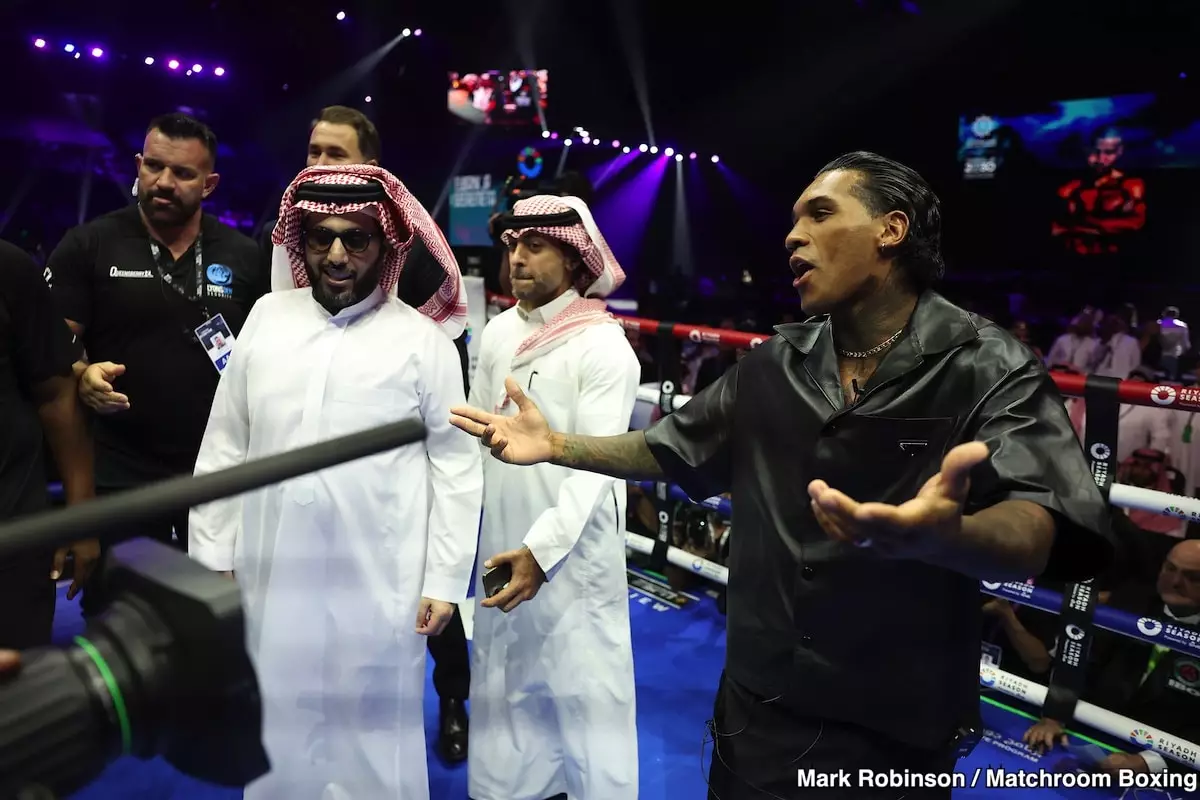Conor Benn, the British welterweight sensation, is perched on the precipice of a crucial career decision. With a pristine record of 23 wins, including 14 knockouts, he stands as the second-ranked contender in the World Boxing Council’s welterweight division. His next move is generating significant attention, especially with promoter Eddie Hearn hinting at a potential clash with Mario Barrios for the WBC title. This matchup could not only elevate Benn’s standing in boxing but also open avenues for lucrative opportunities. However, the choice of opponent poses questions that could shape the trajectory of Benn’s career for years to come.
Benn’s interest in facing Barrios is not merely about the immediate title shot; it reflects a calculated approach to harnessing the financial benefits that come with it. Mario Barrios, with a record of 29-2-1 and 18 KOs, represents a formidable challenge but is perceived by some, including himself, as a winnable fight. For Benn, this bout could serve as a pivotal moment where success translates into greater possibilities, including high-profile matches against the likes of Manny Pacquiao and an anticipated unification bout with IBF champion Jaron ‘Boots’ Ennis. Securing the WBC title is more than a trophy; it’s a gateway to the grander stage of boxing that could deliver both prestige and wealth.
While Hearn advocates for a Benn vs. Eubank Jr. fight—a clash that promises heightened public interest and financial rewards—such a matchup lacks the same weight in terms of championship stakes. Eubank Jr., with a record of 34-3 and 25 KOs, represents a much larger challenge, yet his history against world champions raises questions about the justification of a fight that arguably lacks a title. Eubank Jr. has only contested one world title fight throughout his extensive career, and it ended in a disheartening loss to George Groves. In this light, the risk of facing Eubank Jr. might outweigh the rewards, especially if Benn prioritizes his legacy and seeks to capture real titles instead.
Benn’s choice appears to be influenced not just by titles but also by psychological factors. When facing opponents, confidence plays a crucial role. Benn’s assertion that he believes a fight with Barrios could happen in February indicates a readiness to seize the moment, eschewing the allure of a one-off bout against Eubank Jr. This type of strategic thinking reflects maturity in his career, suggesting that Benn is not just looking for an immediate payday but is also considering the long-term implications of his fights.
The dynamics surrounding Benn’s negotiations underscore the complexity of decisions in professional boxing. Hearn’s comments reveal a tug-of-war between potential matchups, with both Benn vs. Barrios and Benn vs. Eubank Jr. in the conversation. The financial allure of a Benn-Eubank bout is hard to ignore, but Hearn appears to acknowledge that Benn seems drawn more toward the championship opportunity against Barrios. As the promoter navigates these negotiations, the uncertain conclusion reflects a broader reality in boxing where fighters must balance between lucrative opportunities and their desired trajectories in the sport.
As Conor Benn stands at this crossroads, the decision he makes will undoubtedly shape not only his career but could also reshape the welterweight division landscape. Whether he opts for the high-stakes challenge of Barrios or the familiar face of Eubank Jr., each choice bears weight. Ultimately, Benn’s ambition to secure a championship title could signal a new chapter in a career that promises not just competitive spirit but also the potential for monumental wealth and recognition in the sport of boxing. This narrative will continue to evolve as fight fans await the verdict on who will face Benn next, positioning him closer to realizing both his sporting and financial aspirations.


Leave a Reply